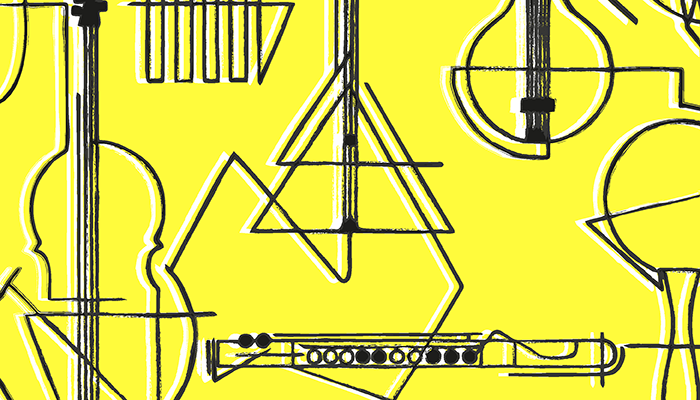
What matters most in music composition – hearing or sight? Though hearing might make the most sense, Beethoven’s progressive deafness is proof that a great imagination can be enough to create remarkable music – and there are a handful of famous composers who struggled to create after experiencing loss of sight.
Take Johann Bach, for example. Regarded as one of the greatest composers of all time, Bach had poor eyesight throughout his life and, by the 1740s, various accounts suggest his eyes had become so painful that surgical intervention was necessary. This period heralded the beginning of the end.
Following an unsuccessful cataract couching, Bach would become completely blind (1). He never played an organ, composed, or directed choirs and orchestras again; instead, he was confined to bed – suffering from immense pain – dying just four months after surgery.
Eighteenth century ophthalmic techniques were (unsurprisingly) limited. At the time, physicians had no concept of bacteria and no anesthesia, so the idea was to operate as quickly as possible. People were not optimistic about their outcomes; if they put themselves in the hands of an eye surgeon, they were taking a big risk.
Similar to Bach, George Frideric Handel experienced declining vision for the last decade of his life. As the story goes, an eye specialist by the name of Samuel Sharp told Handel that his vision could not improve without surgery. Refusing to believe him, Handel referred to his affliction as “worse than beggary, old age or chains.” He added, “Mr Sharp, have you never read the Scriptures? Do you not recall that when the blind lead the blind, they will only end up falling into the ditch?”
And though Handel did finally go through with cataract surgery (by the same surgeon as Bach!), it wasn’t the result he was hoping for. In 1751, aged 65, Handel was almost completely blind. Though he did still possess a good memory for composing, he was unable to perform most other daily activities. And it’s possible the surgery was always destined to fail; two recent comprehensive analyses suggest that Handel’s blindness was actually the result of cerebrovascular disease causing either ischemic optic neuropathy or retinal vascular disease rather than cataracts (2).
Skipping forward a hundred years or so to the Romantic era, we find that, toward the end of his life, composer Franz Liszt also struggled to write and notate music because of his declining vision (3). Liszt was often lead to the concert performance platform on the arm of another person; he was also known to have a severe type of blepharitis. The influence of Liszt’s declining sight on his playing was likely confined just to his score reading. Many historical accounts suggest that Liszt scarcely looked at the keyboard whilst playing. Either way, his drastic loss of vision – which many attribute to a cataract in his left eye – meant an operation was necessary.
Liszt wrote to a friend saying that he found the idea of an eye operation (scheduled for September 1886) extremely “disagreeable.” However, the operation would not take place as he died just a few months before the date. In his obituary of Liszt Hugo, Wolf wrote, “The eye of this brilliant phenomenon is forever closed, but it was the eye of an immortal.” (3)
In spite of whether the ears or the eyes were most important to these classical composers, the real problem looks to be the multiple maladies of aging in a medically limited society. We can now only imagine what the likes of Bach and Handel would have continued to achieve if they had access to modern medicine and technology.
References
- RHC Zegers, “The Eyes of Johann Sebastian Bach,” Arch Ophthalmol, 123, 10 (2005). PMID: 16219736.
- RM Feibel, “The Eyes of Handel,” Arch Ophthalmol, 24, 12 (2006). doi:10.1001/archopht.124.12.1801-a
-
JG O’Shea, “Franz Liszt’s eye disease,” J R Soc Med, 88 (1995). PMID: 8537945.
